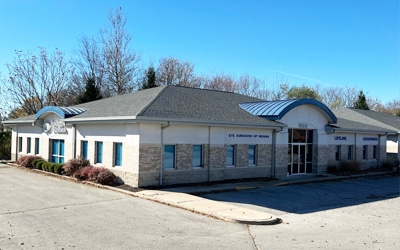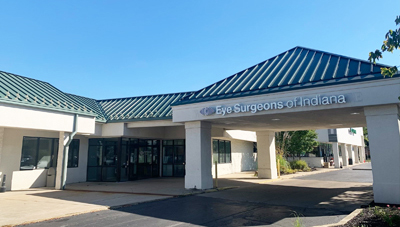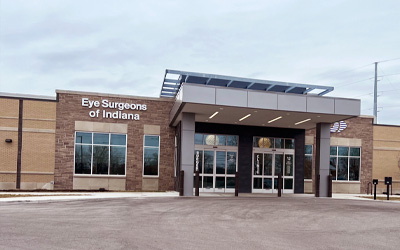Cornea
The cornea is the clear, dome-shaped layer on the front of your eye that helps focus light, so you can see clearly.
If your cornea becomes damaged or diseased, treatment options are available to restore your vision, reduce pain and improve the appearance of your cornea. At Eye Surgeons of Indiana, we have cornea specialists who can help you.
Common Corneal Conditions and Treatment Options
Fuchs Dystrophy—swelling and clouding of the cornea. This defect begins with the destruction of the endothelium cells that regulate the fluid in the cornea. With these cells gone, the fluid builds up and causes the cornea to swell. One of its first signs is hazy vision in the morning. As the disease progresses, the fluid buildup in the cornea will remain until evening, which means patients will then experience hazy vision all day long. If left untreated, blisters can form in the cornea and eventually burst.
- Eye medication
- Cornea transplant
Pterygium—tissue growth on the cornea that begins in the conjunctiva. Believed to be the result of overexposure to ultraviolet rays and environmental irritants, this condition can obscure a patient’s eyesight if the growth expands towards the cornea.
Pterygium may begin as pinguecula, which is a yellowish deposit of protein, fat, or calcium in the conjunctiva. As the raised tissue filled with blood vessels continues to grow, patients may feel a gritty, burning feeling in their affected eye. The abnormal tissue growth will reduce tear production, so dry eyes are also a symptom.
- Eye medication
- Surgical removal and tissue transplant
Keratoconus—progressive disease that causes corneal thinning and visual distortion. The speed of the disease’s progression varies, but many patients experience a rapid deterioration of their sense of sight. Vision becomes blurry and cloudy as the cornea thins and bulges outward in a cone-like shape. Patients also become more sensitive to light.
A cornea transplant may be necessary if the disease reaches an advanced stage, but if detected early, corneal collagen cross-linking surgery can treat keratoconus.
- Cornea cross-linking
- Cornea transplant

















